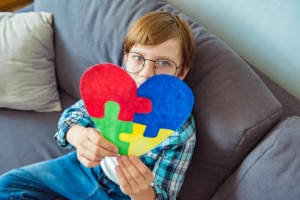
Two mental health experts have joined forces to make an uplifting podcast about well-being and personal growth. We use this show to share fresh and sometimes eye-opening ideas, helping listeners create a more fulfilling life. We’re not pushing any one viewpoint – instead, we’ll bring in guests from all walks of life to expand our understanding of the world. Come along with us as we explore different outlooks together.
In this episode, Sheree delves into the lives of Third Culture Kids with Collin Morgan and Daniel Botes, exploring the impact of growing up in multiple countries and cultures. From the joys of travel to the challenges of belonging, we share personal stories and insights into this unique experience.

Growing up as a Third Culture Kid (TCK) offers unique experiences that profoundly shape one’s cultural identity. These children, who spend significant time outside their passport country during their formative years, develop a complex sense of belonging that impacts them well into adulthood. The journey of a TCK is filled with both incredible opportunities and unique challenges that mold their worldview in ways that many others can’t fully comprehend.
The Pros: A Global Perspective
TCKs gain invaluable life experiences that broaden their worldview and contribute to their cultural identity:
- Cultural Adaptability:
TCKs learn to navigate diverse environments, making friends across cultural boundaries. This skill becomes second nature, allowing them to connect with people from various backgrounds effortlessly. As Daniel notes, “You understand what the nuances of conversation will be in order to reach out and meet somebody in different areas.” This adaptability often translates into strong interpersonal skills and emotional intelligence in adulthood. - Expanded Palate:
Exposure to various cuisines develops an appreciation for global flavors, often resulting in a more adventurous approach to food. Colin shares, “We’ll have jambalaya one night, and then a couple of nights later, we’ll have this authentic Italian pasta.” This culinary openness becomes part of their cultural identity, often leading to a lifelong love for diverse foods and cooking styles. - Unique Experiences:
TCKs often have adventures that set them apart, creating a rich tapestry of memories and experiences. Colin mentions, “We climbed Mount Fuji twice because we couldn’t get enough the first time.” These experiences contribute to a broader worldview and often fuel a lifelong passion for travel and exploration.

The Cons: Challenges of Rootlessness
However, the TCK experience comes with significant challenges that can impact their sense of cultural identity:
- Identity Crisis:
Many TCKs struggle with a sense of belonging, feeling caught between cultures without fully identifying with any single one. Daniel poignantly describes himself as a “forever foreigner” – never fully at home anywhere. This sense of rootlessness can lead to ongoing questions about identity and belonging well into adulthood. - Difficulty Connecting:
Sharing experiences with non-TCKs can be challenging, often leading to feelings of isolation or misunderstanding. Colin explains, “Our adventures sound almost like bragging, even if it’s not intentional.” This difficulty in relating to peers who haven’t had similar experiences can sometimes create social barriers and feelings of loneliness. - Cultural Gaps:
Missing cultural references from their passport country can lead to misunderstandings and feelings of alienation. Colin recalls his brother being called “uncultured” for not knowing who Beyoncé was. These gaps in cultural knowledge can make it challenging to fully integrate into their “home” culture, even after returning. - Commitment Issues:
The transient nature of a TCK’s life often leads to hesitation in forming deep connections or committing to long-term plans. Daniel admits, “I’m scared to commit because I don’t know how long am I going to be here?” This fear of attachment can impact relationships and career decisions well into adulthood.
Navigating the Complexities
The journey of a TCK is filled with unique complexities that shape their cultural identity in profound ways:
- Adaptability vs. Rootlessness: While TCKs develop remarkable adaptability, this can come at the cost of feeling rootless. Finding a balance between embracing change and establishing a sense of home is a lifelong journey for many TCKs.
- Global Perspective vs. Cultural Gaps: TCKs often possess a broad, global perspective, but may struggle with gaps in understanding specific cultural nuances. Bridging these gaps requires conscious effort and a willingness to learn and adapt.
- Rich Experiences vs. Difficulty Relating: The unique experiences of TCKs enrich their lives but can create barriers in relating to peers. Learning to share these experiences in relatable ways becomes an important skill.
- Multilingual Abilities: Many TCKs grow up speaking multiple languages, which enhances their cognitive abilities and cultural understanding. However, this can also lead to challenges in fully mastering any single language, including their mother tongue.

Finding Home in Community
Despite these challenges, TCKs often find their sense of home in relationships rather than locations. As Sheree wisely concludes, “Where your home is, is with people.” This realization can be both liberating and grounding for TCKs:
- Building a Global Network: TCKs often excel at building a diverse, global network of friends and connections. This network becomes a source of support and understanding, especially when connecting with other TCKs who share similar experiences.
- Creating a “Third Culture” Space: Many TCKs find comfort in creating their own “third culture” – a blend of their various cultural influences. This can manifest in their home decor, lifestyle choices, and the communities they choose to be part of.
- Embracing Cultural Fluidity: Rather than trying to fit into a single cultural box, many TCKs learn to embrace their cultural fluidity. They become adept at code-switching between cultures and find strength in their ability to bridge different worlds.
Leveraging TCK Experiences in Adulthood
As TCKs enter adulthood, many find ways to leverage their unique background:
- Career Advantages: The global perspective and adaptability of TCKs often make them valuable assets in international businesses, diplomacy, and cross-cultural communication roles.
- Creative Expression: Many TCKs channel their complex experiences into creative pursuits, producing art, literature, and music that reflects their unique worldview.
- Social Impact: The empathy and global awareness developed as a TCK often lead to involvement in social causes and international development work.
For TCKs, cultivating a strong sense of cultural identity means embracing their unique background while finding ways to connect deeply with others. It’s a journey of self-discovery that continues well into adulthood, shaping resilient, adaptable individuals with a truly global perspective. While the path of a TCK comes with its challenges, it also offers unparalleled opportunities for personal growth and a unique ability to navigate our increasingly interconnected world.



